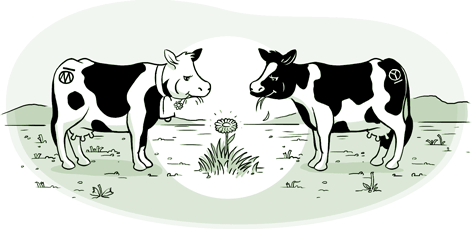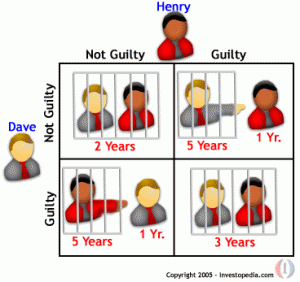
Sustainability is as much about personal decisions as it is about broad social movements or top-down government rules. Those personal decisions are rooted deeply in how we behave as human beings, and that is something that science is far from understanding.
Adam Smith once said “we are not ready to suspect any person of being defective in selfishness (Smith 1804). In many neoclassical economics studies, humans are assumed to act rationally – that is, they act in their own self-interest (known as rational choice theory. Self-interest is generally calculated by financial gain, but more progressive economists will include other factors in the formation of their utility curves such as time resources. The idea spreads beyond economics, however, into other disciplines such as evolutionary biology. For example, Richard Dawkins has argued for the “selfish gene”(2006) attributing all animal behavior to propagation of their genes. He goes so far as to say that any observed “altruism” is actually benefitting individuals with shared genes, so is still essentially selfish behavior.

Perhaps the most cited example of the rational actor is Garrett Hardin’s “Tragedy of the Commons” (1968). Hardin describes the scenario of a common field in which people have the opportunity to graze their cows. Each person adding an additional cow degrades the field a little more, but the costs are split among all users while the benefits go solely to the owner of the cow. According to the rational choice model of human behavior, people then have the incentive to add more and more cows until the field is no longer useable. He concludes his analysis by implying only two solutions – privatization or strong central governmental control.
Challenges to Hardin’s model and rational choice theory in general are abundant, but perhaps the most serious came from common property scholars, who argued that he had confused common property with open access – there are likely institutional rules governing use of the grazing field, not a complete no-rule situation. The episode made apparent that even in cases of true common property, incorrect assumptions were being made about their management. Ostrom (1999) summarized the main assumptions and suggested their abandonment for future studies: a) rational human actors maximizing immediate self-interest, b) rules to change incentives is a simple task best done by objective analysts not tied to the resource, and c) organization requires central direction.

There were serious consequences to maintaining those assumptions in a world where empirical examples were rapidly proving those assumptions false. The assumption of the rational actor meant researchers were fundamentally simplifying human behavior and that new research, especially from game theorists, was largely ignored. Other models, such as Axelrod’s (1984) repeated interactions, predicted the evolution of cooperation over time and had better explanatory power than the rational choice model, yet took decades to become popularized. The assumption that outside researchers had the best insight helped propagate the tragedy of the commons model despite the existence of many communities that managed their commons sustainably. This propagation coupled with the last assumption that central direction is necessary for successful management, led to imposition of top-down approaches by often ineffective national governments that shifted common pool resources to true open access situations, actually causing a tragedy of the commons situation (Ostrom, Dietz et al. 2002).
Common pool resource scholars responded with a different model based on descriptions of successfully managed commons. They first defined two problems that people managing commons have to face – overuse and free riding (Ostrom, Dietz et al. 2002). The overuse concern comes from the extractability that is part of the definition of a common-pool resource. The free-riding problem is a result of the inexcludability of common-pool resources – people can benefit from improvement or management of the commons without providing their fair share of the cost or effort. Common scholars also used their empirical examples of community control to determine that people make decisions based on multiple criteria, among which is the well-being of the community with which they interact (not just financial incentives). Communities are also capable of creating institutions for management of the commons better tailored to those multiple decision criteria and the nature of the resource due to their intimate knowledge of the system.
Commons research is not free of assumptions, however. The problematic assumptions are not as clearly defined as those embedded in the rational actor, but scholars have highlighted a few: a) sovereign selves, b) apolitical institutional creation (Agrawal 2003), and c) that local institutions will be rooted in moral economies (Johnson 2004). Overall, these assumptions have led to a romantic view of the local community. Coupled to the critique that commons research tends to focus on cases of success rather than failure, some might argue that successful commons management is the exception rather than the rule.
Implications of these assumptions have not been fully researched, but there is evidence to question them. Robbins (2006) describes how people are not necessarily monolithic sovereign beings, but can play the role of a hybrid actor. For example, people may make different decisions when asked at home as a citizen of a community than when asked while at work as a landscape manager or hunter. The second critique of apolitical institutional creation has also been called ahistorical (Johnson 2004). This assumes that in the process of creating institutions, there were no selfish motives shifting the institution to benefit certain sectors of society. However, political ecology scholars have documented the occurrence of this manipulation through controlling power and access within the governance system (Agrawal 2003). The final critique has been implicated in a romanticizing of the community. In reality, community-level governance may fall prey to some of the same corrupting incentives as national governance – it just may be less likely due to more face-to-face interaction (Johnson 2004). Therefore, turning governmental power over to the community is not a panacea.
References:
Hardin, G. (1968). “The tragedy of the commons.” Science 162(1968): 1243-1248.
Ostrom, E. (1999). COPING WITH TRAGEDIES OF THE COMMONS Annual Review of Political Science, 2 (1), 493-535 DOI: 10.1146/annurev.polisci.2.1.493
Axelrod, R. (1984). “The Evolution of Cooperation. New York.” Basic Books. Rusbult & Buunk: Interdependence and commitment 201: 32-40.
Ostrom, E., T. Dietz, et al. (2002). The drama of the commons, National Academy Press Washington, DC.
Agrawal, A. (2003). SUSTAINABLE GOVERNANCE OF COMMON-POOL RESOURCES: Context, Methods, and Politics Annual Review of Anthropology, 32 (1), 243-262 DOI: 10.1146/annurev.anthro.32.061002.093112
ROBBINS, P. (2006). The politics of barstool biology: Environmental knowledge and power in greater Northern Yellowstone Geoforum, 37 (2), 185-199 DOI: 10.1016/j.geoforum.2004.11.011
Johnson, C. (2004). Uncommon Ground: The ‘Poverty of History’ in Common Property Discourse Development and Change, 35 (3), 407-434 DOI: 10.1111/j.1467-7660.2004.00359.x